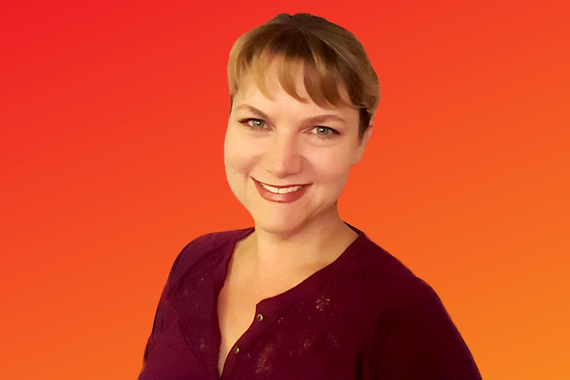"How do you do it?" When people ask how I juggle my technology career with a leadership role in my company's Persons with Disabilities Employee Resource Group on top of my home and family responsibilities, my first thought is, "Not very well!" At least, not on my own.
As women, we often feel the need to be everything to everyone. We strive for perfection, to be that "Superwoman." That is who I have strived to be my whole life, but as I've "ahem" grown up a little and become a little wiser, I've concluded that I don't need to be a Superwoman. What a relief!
I am a strong supporter of sharing stories. Stories are powerful tools for advocacy and awareness. At my workplace, Accenture, we share our stories through Employee Resource Groups, which we have formed around common interests. We use these groups to promote education and diversity and inclusion.
As a leader in the US Disability Employee Resource Group, one of the greatest privileges I have is leading a monthly Lunch & Learn Series called "Walk in My Shoes." This series addresses a wide range of disability topics and enables our colleagues to educate each other and share their personal stories. This sharing fosters support for one another.
Our topics cover both visible and invisible disabilities-from cerebral palsy, to a variety of mental health conditions, Crohn's disease, and many more. The beauty of this series is that each call is developed and presented by real people, by our colleagues and friends at all career levels sharing their own personal stories.
This forum was the trajectory for me in recognizing signs in my son that "weren't quite right" and taking steps to understand why. Attention Deficit Hyperactivity Disorder (ADHD) is not new, and, in retrospect, I should've connected the dots a lot earlier. However, I, like many others, had significant misconceptions.
I thought that ADHD was purely behavioral: a hyper, misbehaved kid who wouldn't calm down and was medicated to be still. I had talked to the pediatrician each year about concerns about my son's behavior at school and in other group settings, but the doctor's perspective was that he's a healthy, "squirrelly" boy. You know, "Boys will be boys."
Others sometimes saw my son as misbehaved, loud, lazy about homework, even a bit weird. I would avoid certain situations to protect him, to avoid other people's opinions about him and about the quality of my husband and I as parents.
It was really when I began to hear the stories from others, during our Lunch & Learns, on neurodiversity topics, that I found myself identifying with so many things. I didn't believe that my son had autism, but there were many similarities-enough to make me think longer and harder about taking steps to find a root cause.
Read the full article
